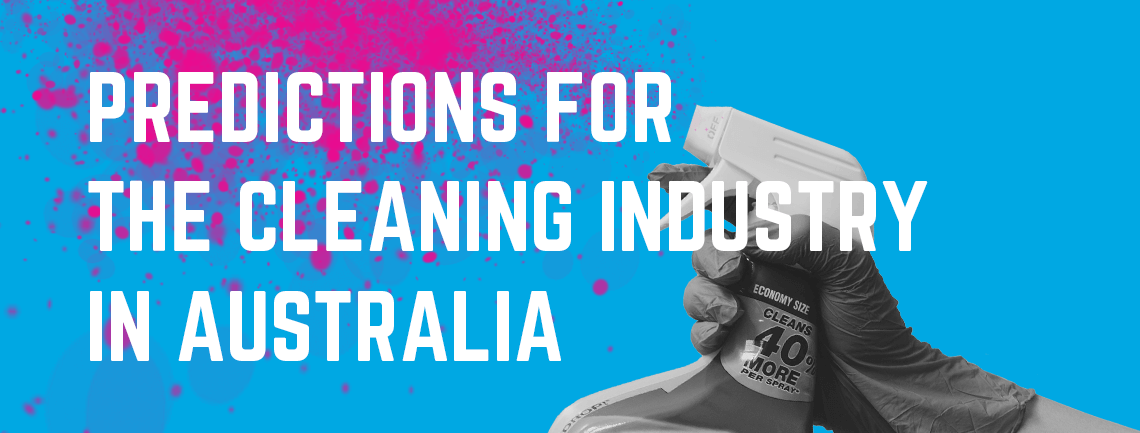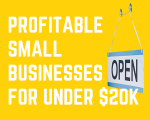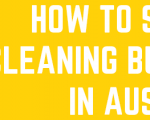The Cleaning Industry in Australia – Insights and Predictions
The events of 2020 made it seem like there's no room for business growth. But is this true? Here are our insights and predictions. January 13, 2021In the past 10 years, cleaning services are gaining popularity worldwide due to factors such as the rapid growth of construction activities, the investment in real estate and the increasing need for proper sanitation in public buildings. According to a report titled “Cleaning Services Market-Global Opportunity Analysis and Industry Forecasts, 2014-2022” published by the Allied Market Research, the global cleaning services market is expected to reach $74,299 million by 2022, growing at a rate of 6.2%.
When it comes to Australia, reports by market observers indicate that there are currently 32,421 commercial cleaning businesses, employing about 151,300 people. In fact, the total number of employees in the labour force is expected to grow even more up to 2022. Due to these fast-increasing numbers, the Australian commercial cleaning industry is currently worth about $12 billion and is foreseen to become a key employer in the next few years.
The cleaning industry in Australia includes a wide range of services required by commercial and residential sectors. It is divided into three main categories – Residential, Commercial and Industrial Cleaning, each of them named after its coverage. Under these broad segments, there are many niche services ranging from domestic ones like oven and barbecue cleaning, to end of lease cleaning, up to commercial window cleaning and everything in between.
Due to the market’s diversity, starting a business or buying a well-established cleaning franchise in Australia is the right choice. There is considerable potential for high-profit margins if you make a smart investment and research your niche. Overall, companies which provide. A good range of quality cleaning solutions to both their residential and commercial clients generate a good source of income.
Take a look at our cleaning franchise.
Table of Contents
Trends and Opportunities
Green Future
These days, people are looking for healthier and safer choices in their everyday lives, including the products they use for cleaning their homes. This trend determines the increased popularity of eco-friendly and sustainable products in the cleaning process during the past few years. Many households rely on natural ingredients that can be found in most homes and strongly prefer them to chemical-based cleaning solutions.
There are many green trends in the cleaning industry. For example, using microfiber cloths and mops, which require only water to remove bacteria; establishing steam cleaning systems that use pressurised water to clean carpets and rugs; companies encouraging clients to use natural cleaning solutions and helping them find eco-friendly ways to clean their homes.
Aside from environmental concerns, natural cleaning improves the health and well-being of clients and workers in the field. For this reason, quality cleaning companies adopt green practices, avoid harsh chemicals and use water-based cleaning systems. An additional benefit is the fact that such cleaning methods reduce repair expenses in the maintenance of buildings.
Potential Growth
In the last few years, the Australian cleaning industry recorded high growth potential due to the increase in the number of businesses in the field. According to a report on Administrative and Support Services, published by The Australian Bureau of Statistics, the main factor that contributed to the growth is the fact that more organisations prefer to outsource cleaning so that they can concentrate on core company activities. Another reason for the high growth rate in the industry is the increasing number of households seeking support for domestic services in order to save time.
Cleaning doesn’t come up with a trend – it is a necessity for everyone. Due to busy schedules and limited free time, dual-income middle-class families choose to hire professional cleaners for their households. Whether you decide to start a new business or choose to buy a cleaning franchise, the growth potential remains high. Suppose you want to develop a successful business strategy. In that case, the most important thing is to deliver high-quality services so you can fulfil the customers’ needs and stand out from the competition.
Whether you decide to start a new business or choose to buy a cleaning franchise, the growth potential remains high despite the COVID-19 setback.
Smart Cleaning
In the era of globalisation, high technologies have an impact on every aspect of human life. For many years Industrial cleaning has relied on both manpower and machinery, yet lately, the main focus is placed on the latter. Recent trends in the industry show that companies start to implement smart machines in their work to speed up the process and make it more consistent. This is not a surprise – after all, a robot is always ready for the next cleaning session and never gets too exhausted to work.
According to a comprehensive analysis of the cleaning industry in the US, UK, Singapore and Australia, the cleaning businesses will start rolling out more smart cleaning robots in the future. In April 2018, the first robot cleaner started work at Singapore’s National Gallery. The Japanese company Softbank Robotics also offers a fully autonomous vacuum sweeper called Whiz. Robots like these completely reinvent commercial cleaning. This trend contributes to the decrease in employment as there will be more cleaning robots and less workforce on-ground in the future.
Another industry trend, related to the impact of technology, is the increasing number of self-employed cleaners that can be attributed to fast-developing digital platforms. These platforms are easily accessible, free and user-friendly, so the customers often prefer the app-based cleaning service to the conventional one. The result – all this mobile integration has negatively affected family-owned and small business owners.
Sources:
https://www.cleaningservicereviewed.com/global-cleaning-industry-statistics/#Australia
https://www.alliedmarketresearch.com/cleaning-services-market
https://www.ibisworld.com.au/industry-trends/market-research-reports/administrative-support-services/commercial-cleaning-services.html
https://www.evolvecleaning.com.au/blog/10-surprising-statistics-commercial-cleaning-industry/
https://www.nielsen.com/wp-content/uploads/sites/3/2019/04/Nielsen20Global20Home20Care20Report_2016.pdf
https://www.betterbondcleaning.com.au/8-reasons-to-start-a-cleaning-business-in-australia/
https://www.abs.gov.au/AUSSTATS/abs@.nsf/Previousproducts/8155.0Main%20Features72016-17?opendocument&tabname=Summary&prodno=8155.0&issue=2016-17&num=&view=















I am doing a business course, and all this information is fantastic.. thank you.
Interesting insights on the cleaning industry. Great points – thanks for sharing!